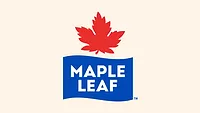Maple Leaf Centre for Action on Food Security announces new partner funding
Funding these forward-thinking initiatives, which range from addressing on-campus student hunger to creating a multi-stakeholder food security community of practice, will yield important insights and outcomes.

The Maple Leaf Centre for Action on Food Security, Canada, announced investments in four new projects that focus on advancing food security in Canada.
Since it was established in late 2016, the center has committed investments of more than $3.4 million to support 11 projects.
"It is a national shame that with our wealth as a nation and abundant food, 4 million Canadians face hunger," says Michael McCain, honorary chair of the center. "This requires policy reform. It requires new ways of tackling the issue. It requires action by business, civil society and individuals."
Funding these forward-thinking initiatives, which range from addressing on-campus student hunger to creating a multi-stakeholder food security community of practice, will yield important insights and outcomes.
Here are the center’s new partners and their projects:
Food Secure Canada (FSC), Canada, has built an extensive national network of diverse organizations and stakeholders that tackle the many dimensions of food policy. With funding from the center, FSC will establish a Food Security Community of Practice, which will engage stakeholders across Canada through a series of local community meetings to raise the profile of the issue, share learnings and research and stimulate action on programs and policies that have material impact on advancing food security. FSC will partner with the Social Planning Council of Sudbury to implement the project, including engaging stakeholders from Northern Canada.
Meal Exchange, Canada, engages post-secondary students in food security issues and initiatives on campuses and within their communities. In 2016, Meal Exchange undertook what is said to be the largest national study of student hunger on five Canadian campuses and found that 8% of students has experienced severe food insecurity. The center will partner with Meal Exchange to bring together multi-level stakeholders to identify barriers and develop and pilot strategies at Ryerson University in Toronto and Lakehead University in Thunder Bay. Learning from this 3-year project, piloted in both urban and rural campuses, will inform future Meal Exchange programs.
The center is supporting the Ottawa Food Bank with the University of Ottawa, Canada, to conduct one of the first longitudinal research studies on the relative benefits and impact of different food bank programs and services on its members. A final report will be communicated to key stakeholders across Canada. Research findings will inform the Ottawa Food Bank and other organizations, as they move beyond emergency food relief into other programs and services that address member needs and advance food security.
Looking for quick answers on food safety topics?
Try Ask FSM, our new smart AI search tool.
Ask FSM →
Kamloops Food Policy Council (KFPC), Canada, operates a fruit recovery program, where each year, surplus fruit is harvested and distributed to emergency food providers and homeowners. With support from the center, KFPC will implement a pilot project for creating a variety of after-school snacks for the Boys and Girls Club by dehydrating and preparing gleaned fruit. This program will provide healthier, locally prepared snacks, create a new outlet for abundant local fruit and increase the self-sufficiency of the gleaning program through this social enterprise.
This article was originally posted on www.refrigeratedfrozenfood.com.







